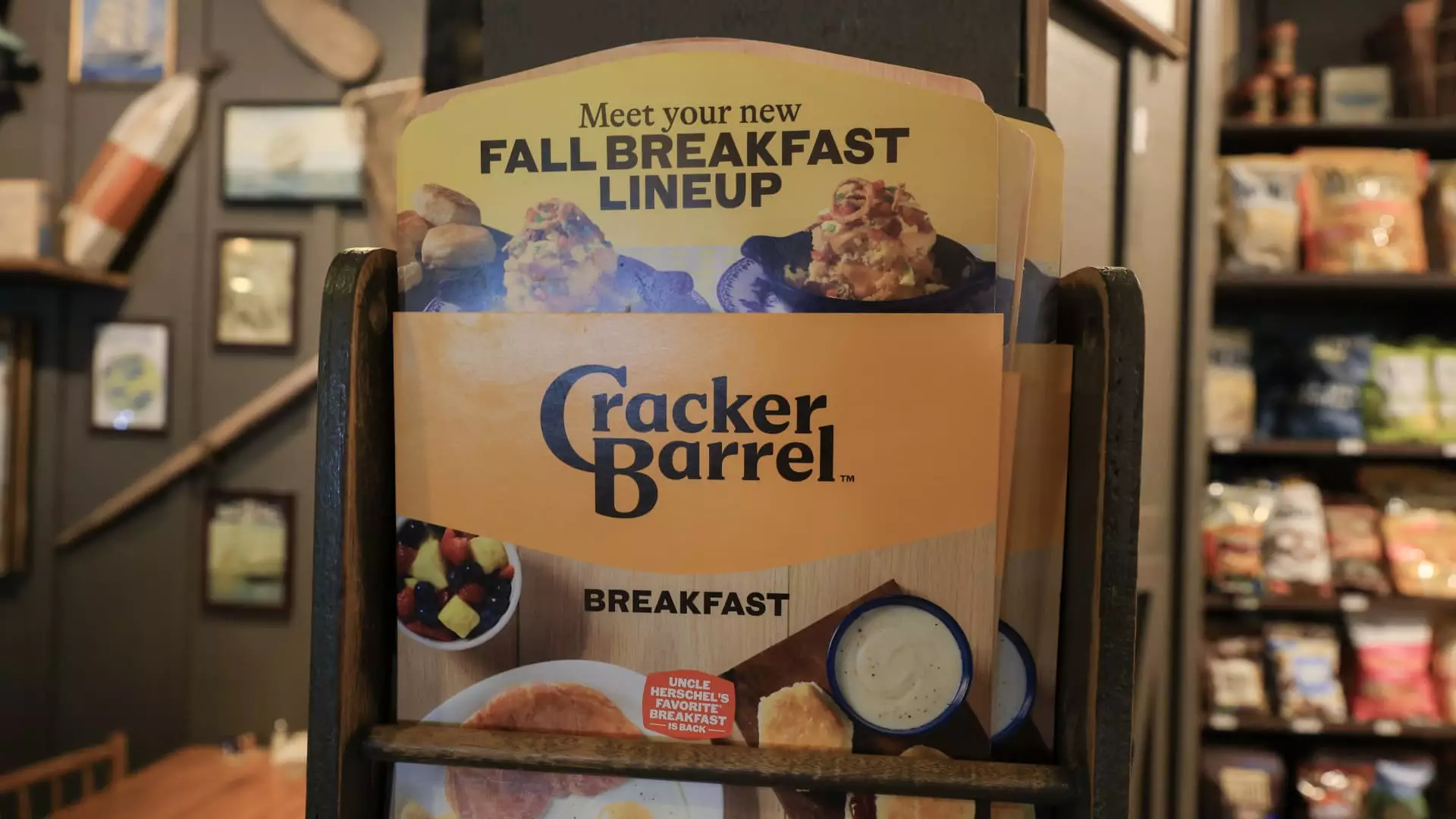Cracker Barrel’s latest branding overhaul has ignited a firestorm of backlash, spotlighting a company attempting to modernize its image amid a deeply polarized cultural climate. The decision to strip away the iconic image of the man leaning against a barrel and eliminate the phrase “old country store” signals a dramatic departure from the brand’s historic aesthetic. While the company insists this change is part of a strategic evolution aimed at revitalizing their identity, it undeniably raises questions about whether this move undermines the authenticity that built their loyal customer base.
This rebranding, perceived by many as an abandonment of tradition, suggests a troubling trend among legacy brands: capitulating to social and political pressures rather than standing firm in their core values. The new logo’s minimalist approach, emphasizing just the words “Cracker Barrel” on a yellow background, feels like a generic modernization that sacrifices soul for superficial appeal. It’s a gamble that could alienate long-standing customers who see the chain as a nostalgic emblem of rural Americana. The removal of traditional visual elements reflects not just a name change but a broader shift away from the values many associate with “country hospitality” — a move critics argue is driven more by a desire to appease progressive cultural sensibilities than by genuine brand enhancement.
The Political and Cultural Implications: Woke Capital or Responsible Branding?
The strong conservative opposition to these changes indicates a larger ideological battle. Critics like Donald Trump Jr. and Robby Starbuck argue that the logo’s redesign is a calculated move to erase “American tradition,” supposedly driven by a desire for greater diversity and inclusion. This perspective reflects a broader distrust of corporate efforts to rebrand in ways that seem to favor progressive social agendas. To many in conservative circles, this isn’t merely a marketing tweak but a capitulation to “wokeness,” diluting the essence of American symbols in pursuit of corporate appeasement.
From a centrist liberal standpoint, however, the issue isn’t as cut-and-dried. While it’s understandable to question whether the branding betrays the company’s roots, it’s equally essential to recognize that adaptation is necessary for businesses to thrive in an evolving society. The backlash, fueled heavily by social media noise and political posturing, underscores how corporate decisions are increasingly scrutinized through a partisan lens. The concern isn’t just about aesthetics — it’s about whether corporations are abandoning their cultural responsibilities or simply trying to stay relevant in a pluralistic world.
Cracker Barrel’s challenges extend beyond the logo. The interior updates, described as “lighter, brighter, and more welcoming,” have also met resistance from traditionalists who feel that the rustic charm has been sacrificed at the altar of modernity. The tension between preserving identity and embracing change is palpable, illustrating how businesses today are caught in the crossfire of cultural identity debates. It’s not just an issue of branding; it’s about what kind of society we want to foster — one that values heritage or one that prioritizes inclusivity at the expense of authenticity.
The Risks of Yielding to Political Pressures
The corporate world’s temptation to bend to cultural scorecards can be perilous. Cracker Barrel’s valuation, modest compared to major chains, should serve as a warning. Small market caps often mean less resilience against social backlash and reputational damage. The company’s stock decline following the logo change exemplifies how politically charged decisions can translate into tangible financial repercussions. When public sentiment turns polarized, nimble brands risk losing both their traditional customer base and broad mainstream appeal.
The debate also reveals how social media has transformed corporate reputation management. A single post—whether from a political figure or a social influencer—can significantly influence investor confidence and consumer perception. Cracker Barrel’s plight echoes the experience of brands like Bud Light, which faced backlash over perceived cultural concessions. Such instances highlight a cautionary tale: balancing authentic brand identity with modern social sensitivities is a tightrope walk. When companies prioritize appeasement over authenticity, they risk alienating their core supporters and diluting their brand purpose.
While embracing change is vital for growth, the question remains whether Cracker Barrel’s recent decisions reflect strategic foresight or reckless capitulation. The ongoing controversy demonstrates how quickly corporate reputations can be damaged when decisions are perceived as politically motivated. It’s a stark reminder that brands rooted in tradition should exercise caution before surrendering their identity to fleeting cultural trends — an act that, if mishandled, can be far more damaging than any intended modernization.

